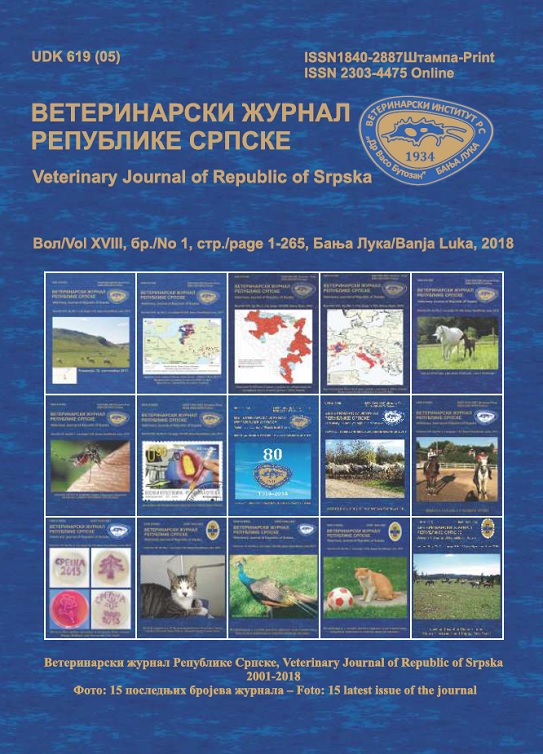INFLUENCE OF WEIGHT OF MEAT-TYPE HYBRID HATCHING EGGS ON INCUBATION RESULTS
DOI:
https://doi.org/10.7251/VETJEN1801054VAbstract
The aim of study was to examine the values of the incubation parameters
(weight loss, fertilization, hatchability of placed and fertilized eggs, total, early,
middle and late embryonic mortality) of eggs of different weights in brolier hybrid
Cobb 500. In total, 600 eggs were divided into four equal groups (n = 150 each)
according to their weight: 57.5-62.5 g (S); 62.6-67.5 g (M); 67.6-72.5 g (L) and 72.6-
77.50 g (XL). Values of incubation parameters were determined and statistically
processed by standard methods. The weight of eggs significantly influenced the loss
of egg weight during incubation (p<0.05), with this loss being higher in smaller eggs
(group S 11.10% and group M 11.40%) compared to larger eggs (group L 10.42%
and group XL 10.31%). Hatchability of all eggs in groups S, M, L and XL was 76.0;
75.3; 78.7 and 66.0%, respectively, and for fertilized it was 82.0; 81.3; 82.5 and
71.7%, respectively, with no significant difference (p>0.05). The weight of eggs did
not significantly affected the difference in embryo mortality values, although in the
XL egg group a higher value of total, early and late mortality was found, compared
to other groups. The results of this study indicate lower hatchability and higher
mortality of embryos in eggs of extremely large weight, compared to other groups,
which indicates that special attention should be given to the selection of hatching
eggs in terms of their weight.

